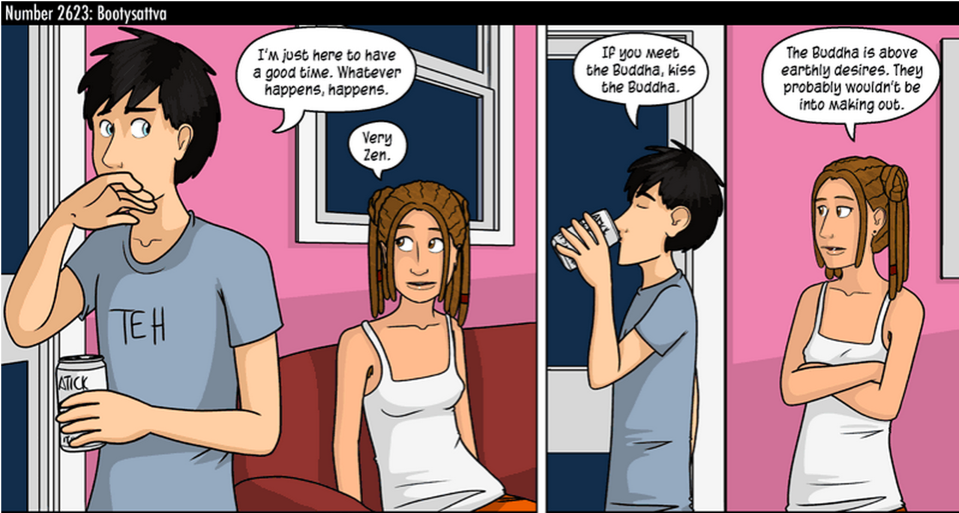
Perhaps I'm just being a curmudgeon, but I really wish people would stop using "they" as a neuter third-person singular pronoun.
There are two situations in which the grassroots seem very recently to have decided that this is acceptable, whereas it until very very recently would have been a barbarism. There is (a) the case of the individual whose sex is not know to me and (b) the case of the individual who "identifies as non-binary" and who prefers "they."
The former case includes, "A child was in danger, so they had to be helped," where the sex of the child is unknown, or the child is hypothetical and the sex is not important to the hypothesis. In the old days, one would have gone with the generic "he" here. In our own enlightened time, "he/she" seems still to be available, though "they" is gaining ground.
Perhaps the people have spoken. Those bastards.
The use of "they' in the above comic is somewhere in between that situation and the other one to which I have alluded. I doubt the Buddha ever said "I prefer 'they' as my pronoun. Please use it in referring to me."
But even if someone DOES say that, aren't we being good citizens of the republic of letters by ignoring that silly wish? And, indeed, disdaining contact with that silly person where possible? Not too long ago, one would have regarded the above quoted request as akin to, "I identify as a monarch. Please use 'Your royal highness' in addressing me." Either the speaker actually IS a monarch, or he/she isn't.
Christopher, it remains a barbarism, even if it is becoming widespread. And one should use "he or she," not "he/she," because the former is how we speak, whereas the latter is how we take notes. "He or she," incidentally, like just "he," is sexist, because the male pronoun always comes first. One could write "she or he," or, as I see in philosophy papers especially, just "she." But as ethically warranted as such reverse discrimination is, I oppose it because it breaks the flow of the writing. One might be writing about a philosophical question, and to use "she or he" or just "she" interrupts one's discussion of the philosophical question to make a political statement--a statement that the writer opposes the standard sexist use of pronouns. With enough use of "she or he" or "she," the political statement might disappear, but that doesn't justify poor writing now.
ReplyDeleteThere is a third situation in which people use "they" to refer to one person: when they do not want to disclose the sex of the person. That might be the case in a letter to "Dear Prudence" at Slate this morning: "The person I dated ... said they’d hurt themselves if I left." I don't know why the writer would not want to disclose the sex of the person he or she dated, as doing so would not disclose the writer's sex. But then the writer adds, "This academic year I’ve befriended a new, younger student, and I’m trying to look after her," disclosing the sex of the new person that he or she is dating. (I assume that "befriended" here means "dating.") So perhaps the writer used "they" simply because he or she believes that it is acceptable. That would be a fourth reason.
ReplyDelete